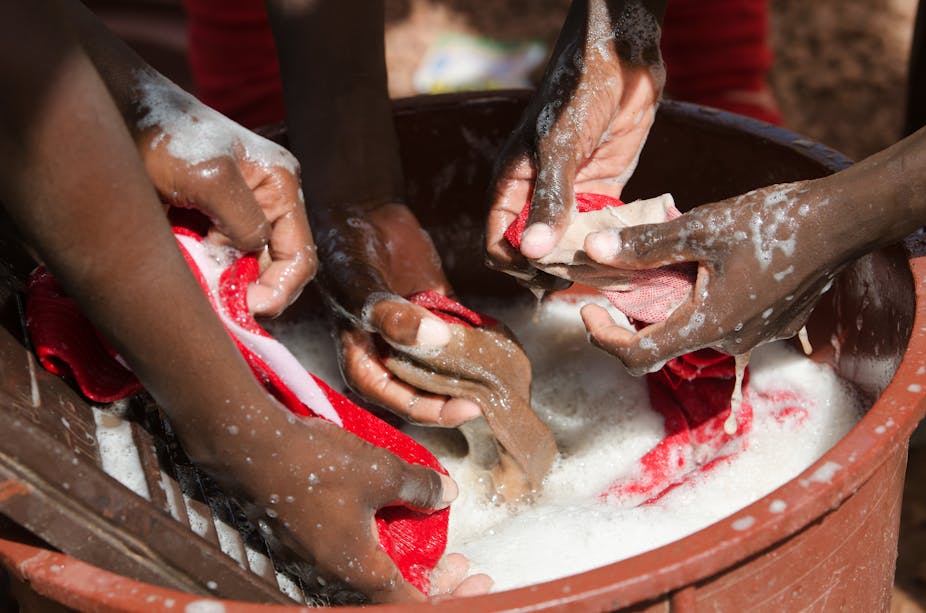Hiring domestic servants is a common phenomenon in Nigeria. More often than not this involves vulnerable children being made to work as live-in domestic servants mostly in middle class urban households.
Researchers have investigated what creates the supply of child labour, but few have attempted to understand the demand. My research produced some pointers to why households use children as servants. This is why I chose to investigate factors that propel demand for domestic servants in Oyo State, southwest Nigeria. Oyo State is known as a hot-spot for child trafficking – as source, transit and destination.
The results showed three categories of employers: newly married women, married women with grown-up children, and isolated widows and grandparents. Demand was driven by a number of factors, including having too much of a workload and the need for companionship. Another factor appeared to be the declining extended family structure and a growing preference for “outsiders” rather than family members to do household work.
Most of the children faced exploitation from traffickers as well as employers and lived in slave-like conditions.
Based on my findings I make some recommendations on what needs to be done – beyond Nigeria’s Child Right Law which bans such practices – to prevent the exploitation of children. The study also recommends welfare programmes targeted at demanding households and an intervention strategy for the trafficked children.
Hiring domestic servants
Research participants listed a number of reasons they preferred a stranger to do the work in the house rather than a relative.
It meant that they could keep prying relatives at bay in the first months and years of their marriage. Also, they preferred an employee-employer relationship as this gave them more power over the individual. Also, some interviewees pointed out that they could mete out punishment to an employee that wouldn’t be tolerated by a family member.
However, not all employers were cruel.
The practice of fostering a member of the extended family has been widespread for centuries in Nigeria. But the practice has been changing.
Many of those I interviewed listed a number of reasons for not wanting to foster a relative. They cited cultural obligations and the enormous demands of having fostered children. This was particularly true if a child was orphaned.
The research found that age played a role in the demand for domestic servants. Young, newly married women said they took up paid employment once they had children. One respondent said:
I never liked the idea of bringing a third party into my house but when we started bearing children and I have to go to work, I had no choice other than to secure an extra hand to help with the domestic demands.
Older women cited the need for companionship rather than performance of domestic chores.
The location of a husband’s job was also a factor. Women complained of boredom when their husbands were away at work stations outside the state.
Another critical factor was the number of children in a household, and their ages. The domestic tasks increase with the number of children; their age determines the attention they require. Pregnancy may also create a need for help with housework. A respondent said:
The reason was that I was pregnant, creating the need for somebody to start taking care of the children. All along, I have sisters and another relative living with me but they have all left for school. Their absence created a vacuum and when I took in (became pregnant), it was obvious that I needed somebody to assist me so I will not cause complications by overworking.
Our research found that households where husbands assist in performing domestic duties, though not common, often didn’t see the need for a domestic servant.
What needs to be done
Nigeria enacted the Child Right Act in 2003 to protect children from being separated from their parents and exposed to hazardous works. Although the law exists, not all the states have adopted it. At least 11 states in Northern Nigeria are yet to pass it due to the fact that its provisions is claimed to negate cultural practices and their belief.
But even those states that have adopted the law not much is being achieved in checking human trafficking of children or for domestic work.
The government has a great deal of work to do. It needs to make a conscious effort to implement the law. Companies can also play a role. Childcare facilities must be established in organisations while closing hours for women should be reduced to enable them attend to domestic roles.

